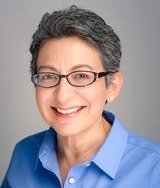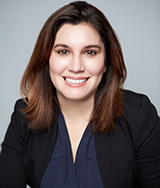K12 Career Development Award
The NUCATS Mentored Research Career Development Program in Clinical and Translational Science (K12, formerly KL2) is a National Center for Advancing Translational Science (NCATS)-sponsored career development award supporting early-career faculty at Northwestern. It is designed to train a strong workforce of investigators to drive future innovation and implement effective clinical and translational research.
The program includes robust mentoring teams to assess the educational needs of each awardee (Scholar) and to provide personalized career development opportunities and resources to Scholars working in disparate fields of study.
Eligibility & How to Apply
This Program is for early career investigators who have or will have a faculty appointment at the time of receiving the award. The 2025-26 Request for Applications is now open.
K12 Application Timeline
| Request for Applications | Information Sessions | Letter of Intent Deadline | Full Application Deadline |
| December 9, 2026 | See slides & recording below | April 1, 2026 | May 4, 2026 |
| Finalist Interviews | Award Announcement | K12 Bootcamp | Award Period Begins |
| Mid-Late June 2026 | Late June 2026 | TBD | September 1, 2026 |
*If you miss the letter of intent due date, please email Morgan Barrowman as soon as possible in order for your application to proceed to review.
K12 Information Session
K12 Media Links
Recent K12 News
Investigating Blood Vessel Dysfunction to Improve Outcomes for Patients with Atrial Fibrillation
Anna Pfenniger, MD, PhD, used her career development award to support discovery of the molecular mechanisms of atrial fibrillation (AFib) to enable targeted therapies and reduce disease burden.
Khan Featured in Northwestern Medicine Magazine
An expert in predicting the risk of heart disease and failure, Khan has previously shown that CT scans can predict a risk for a heart attack, markers from blood tests can predict risk for heart failure, and that obesity before pregnancy predicts future heart health.
Walsh-Bailey, McNerney, Aydemir Named K12 Scholars
Three dynamic investigators have been named as the first cohort of K12 scholars at the NUCATS Institute. Learn about their career paths and current research projects as they begin their two-year award period.
Khan Featured on NPR
Sadiya Khan, MD, MSCI, was recently featured in an NPR story on how mammograms may also gauge a person's risk for heart disease
Haywood Exploring How Chronic Disability Affects Access to Healthcare, Community Life
Carol Haywood, PhD, OTR/L, is using her NUCATS Institute Career Development Award to study the intersections of chronic disability, community life, organization of health services, and access to healthcare. Learn more about Haywood's ongoing research and how the KL2 Award has positioned her to succeed.
KL2 Alumni Achieve Career-Building Funding Successes
Lisanne Jenkins, PhD, Kyle MacQuarrie, MD, PhD, and Anna Pfenniger, MD, PhD, each credit the dynamic KL2 program at NUCATS with putting them in position to grow their research careers.
Video: KL2 Scholar Hadie Makinde Seeks Answers for Autoimmune Disorder
KL2 Scholar Hadie Makinde’s research addresses the impact of monocyte — a type of white blood cell — populations in scleroderma, an autoimmune disorder that affects the skin and internal organs. Her long-term research goal is to develop a precision medicine approach for the 300,000 Americans who suffer from the disease.
Video: Anna Pfenniger Discusses Bioresorbable Pacemaker Technology, AF Solutions
Specializing in cardiac electrophysiology, Anna Pfenniger, MD, PhD, assistant professor of Medicine in the Division of Cardiology, is working to improve the lives of those living with irregular heart rhythms, all the while inspiring intellectual inquiry among her peers.
Video: Ravi Patel Discusses Role of NUCATS, Mentorship in Establishing Research Career
As a Northwestern University Feinberg School of Medicine graduate, MSCI recipient, and KL2 fellow, Ravi Patel, MD, MSCI, assistant professor of Medicine in the Division of Cardiology, has thrived at Northwestern, exploring career development and educational opportunities from the NUCATS Institute along the way.
Doctors, Disabled Patients, and Ableism
KL2 Scholar Carol Haywood talks about a new study examining physicians' attitudes towards patients with disabilities. She explores the impact of the Americans with Disabilities Act on doctor-patient relationships, and shares recommendations for addressing structural and attitudinal barriers.
Pregnant Gen Zers, Millennials Twice as Likely to Develop Hypertension in Pregnancy
Gen Zers and millennials are approximately two times more likely to be newly diagnosed with high blood pressure during pregnancy, reports a new Northwestern Medicine study led by KL2 alumna Sadiya Khan.
Three Feinberg Researchers Named KL2 Scholars
Three Northwestern University Feinberg School of Medicine early-career investigators have joined the NUCATS Institute's KL2 Multidisciplinary Career Development Program.
Yanez Named Associate Director of Northwestern’s KL2 Program
Betina Yanez, PhD, associate professor of Medical Social Sciences, has been named associate director of the Northwestern University Clinical and Translational Sciences (NUCATS) Institute’s KL2 Program.
Northwestern receives $18.1M to study the most common type of heart failure
Diastolic heart failure affects 2.5M Americans; little is known about its causes, how to treat it.
SuperAger Study Expands Nationally with $20 Million Grant
Scientists search for protective factors that enhance brain’s resistance to Alzheimer’s disease and wear-and-tear of aging.
Questioning Dogma: Study Sheds New Light on Heart Failure with Preserved Ejection Fraction
Ravi Patel became involved in the research through his KL2 mentor Sanjiv Shah, MD, who was the principal investigator on the project.
Study: Neighborhood Poverty Associated With Heart Failure
Patients who live in high-poverty neighborhoods were nearly twice as likely to develop incident heart failure than those who live in low-poverty neighborhoods.
Podcasts
Supporting Early-Career Scientists with Sadiya Khan, MD, MSc
Sadiya Khan, MD, MSc, was recently awarded two Research Project (R01) grants from the National Institutes of Health, a rare feat for an investigator in the earlier stages of her career. In the first episode of the NUCATS’ podcast, Science in Translation, Khan talks about the role the institute has played in her research career so far, through the KL2 Career Development Award, to access mentors, resources and more.
Doctors, Disabled Patients, and Ableism
KL2 Scholar Carol Haywood talks about a new study examining physicians' attitudes towards patients with disabilities. She explores the impact of the Americans with Disabilities Act on doctor-patient relationships, and shares recommendations for addressing structural and attitudinal barriers.
Cell-Based Treatments to Fight Diseases with Luisa Iruela-Arispe, PhD
Cell and Developmental Biology is a field that's integral to finding new therapies for a wide variety of diseases. At Feinberg, Lusia Iruela-Arispe, PhD, a vascular biologist, leads the Department of Cell and Developmental Biology as chair. In this episode, talks about her research and the future of cell-based treatments for diseases.
Lessons Learned from COVID-19 and HIV/AIDS Pandemics with Richard D'Aquila, MD
The past two years have been a crucial time for the study of infectious diseases. Richard D’Aquila, MD, professor of Medicine in the Division of Infectious Diseases at Northwestern and director of NUCATS, discusses how HIV/AIDS research is running parallel to ongoing COVID-19 research with interesting crossover and lessons learned.
COVID-19 and Vulnerable Communities with Mercedes Carnethon, PhD
Mercedes Carnethon, PhD, a Northwestern Medicine epidemiologist and a population science expert, talks about how COVID-19 is affecting Black, Indigenous, Latinx and other people of color the most, as the pandemic continues and vaccine rollouts lag behind.
The Dangers of Unproven COVID-19 Therapies with Benjamin Singer, MD
While the world anxiously awaits a vaccine for COVID-19, some physicians on the front lines are trying new or repurposed therapies in an effort to help COVID patients. Dr. Benjamin Singer, a Northwestern physician-scientist, discusses his experiences in the ICU during this time and his recently published letter warning against the use of unproven therapies.
Heart Failure Deaths on the Rise in Younger People with Sadiya Khan, MD, MSc
Death rates due to heart failure are increasing, especially in people under the age of 65 and specifically among Black men. What is fueling this upturn? How can it be stopped? Sadiya Khan, MD, assistant professor of medicine explains.
Health Disparities with Mercedes Carnethon, PhD & Kiarri Kershaw, PhD, MPH
Feinberg scientists Mercedes Carnethon, PhD and Kiarri Kershaw, PhD, MPH, discuss their striking discoveries in the area of health disparities.
Meet Our Team
Contact Us
For NU Competitions technical support, contact competitions@northwestern.edu.







